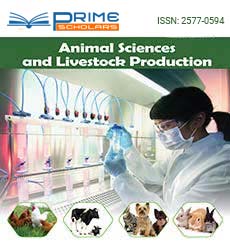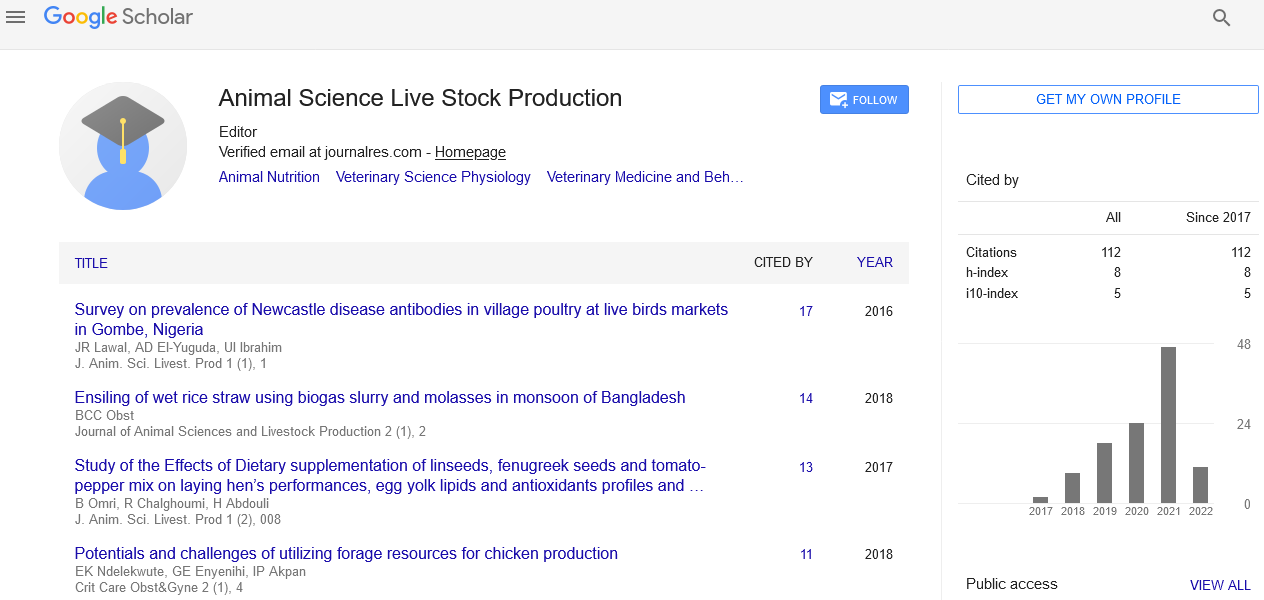MVJM Moreno Lazo*
Cuban Association of Veterinary Medicine, Branch Pinar del Río, Cuba
- Corresponding Author:
- MVJM Moreno Lazo
Cuban Association of Veterinary
Medicine
Branch Pinar del Río, Cuba
Tel: 5348752304
E-mail: morelazo51@gmail.com
Received date: February 5, 2019; Accepted date: February 12, 2019; Published date: February 25, 2019
Citation: Lazo MVJMM (2019) Cuban Ambulatory Veterinary Clinic. J Anim Sci Livest Prod Vol.2 No.2:08.
Copyright: ©2019 Lazo MVJMM. This is an open-access article distributed under the terms of the Creative Commons Attribution License, which
permits unrestricted use, distribution, and reproduction in any medium, provided the original author and source are credited.
Introduction
Taking as reference 1959, the year where precisely in Cuba
took place important economic and social changes, we can say
that the Cuban Veterinary Medicine became widely benefited,
only until that year in Cuba had graduated 848 Veterinary
Doctors after the creation of the School of Veterinary Medicine
of Havana, founded on April 10th, 1907. The wide gratuitous
access to education without any distinction for everyone, not
only alphabetized the people but continued with educational
programs that significantly improved their cultural level.
Universities were opened, universalizing this type of education;
today we have several Veterinary Faculties in several provinces
of the country that had graduated more than 5000 veterinary
doctors with study systems linked to the daily practice; to this,
we should add the Technological Institutes that form technicians
in Veterinary Medicine and Artificial Insemination. These
possibilities have allowed the consolidation of a scientifictechnical
work in our profession, also supported by a vast
academic program of Masters and Science PhDs. Experience,
performance, competitiveness and new ethical principles
present us to the era of One Health or direct assistance to the
people, under the fundamental principles of Primary Health
Care (PHC), conceiving a general strategy based in the active and
conscientious social participation, prophylaxis, sanitary
measures and health care with quality and efficiency among
others.
Under this principle generally works the veterinary clinical
attention, reaching all points of the urban, suburban and rural
geography, without leaving out a net of clinics and consults that
also assist.
This veterinary health program has been developed under the
conditions of a subsistence economy against a commercial
economic embargo set by the governments of the USA,
reinforced by extraterritorial laws and that has been going on for
already 57 years. This situation prevents us to access a great
variety of veterinary drugs, and of course, to diagnostic means
and state of the art technologies. On the other hand, the
development of the individual and collective capabilities have
motivated a high degree of creativity for the animal health care,
sanitation, prevention, the use of native vaccines, among others,
which allows us to maintain an equilibrated status of animal
health.
The house to house ambulatory work educates the client and
the professional and gives the possibility of treating both
productive and small animals (pets), common to our
environment, the epizootiological/epidemiological surveillance
is more effective and emerges a relationship professional-clientanimal
with new ethical values of solidarity and love to the
animals, reflected in a marked improvement of pets and
productive animals, compared with indexes of developed
countries, and also kennel clubs for different races in order to
maintain the genetic values, the organized existence of animal
protectors and the existence of a law project for animal
protection and welfare, in phase of elaboration to be proposed
later to the Cuban Parliament.
The clinical care work is carried out in several ways:
individually and in teams, and the local system of
epizootiological surveillance integrates to the national
surveillance system. The internal and external parasitic diseases
and those of the skin are frequent, coinciding with the
characteristics of our tropical climate. There is an anti-rabies
vaccination campaign, coordinated with zoonosis specialists
from the Ministry of Public Health, completely gratuitous, thus
guaranteeing a very favorable immunological status regarding
rabies, especially canine. Also common is the work of surgery
regarding sterilization, preferably for females, mostly dogs and
cats, which are supported by groups for animal protection which
carry out massive campaigns also gratuitous; the more
complicated surgeries are less frequent, motivated as we
previously stated by the limitations in the necessary resources. It
is important to point out in these years the use of alternative
medicines (Bioenergetics and Natural), which have greatly
substituted the limitations stated earlier and has also allowed
achieving some degree of specialty in them.
We bet for our ambulatory clinic, effective and efficient, with
the use of appropriate technologies, with interdisciplinary
support defined in processes of decentralization, synonym of
Primary Health Care, which is essential health care, based on
practice, in scientific evidence and in socially acceptable
methodologies and technologies, universally accessible to all
individuals and animal owners in the communities, through their
total participation and at a cost that the community could bear
with self-determination.

